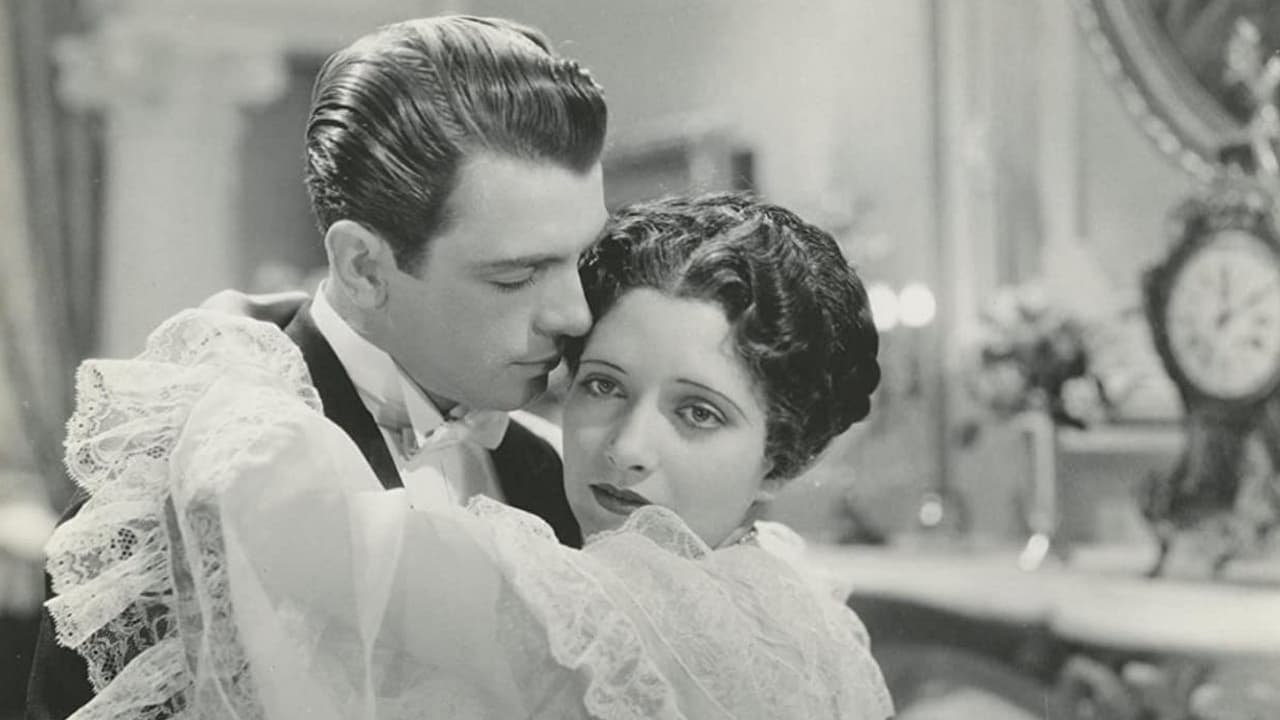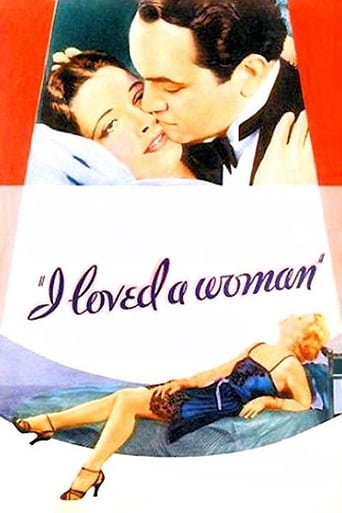

What a beautiful movie!
... View MoreThe Worst Film Ever
... View MoreBlistering performances.
... View MoreThe movie really just wants to entertain people.
... View MoreWell it's certainly not a great woman with morals, but stupendous ambition! I could not believe the lower ratings from review sites and almost did not watch. This was fascinating cinema eclipsing the rare talents of Edward G. Even having our dear Uncle Teddy chasing down Trust scoundrels to boot! The capture of many decades and stock footage enriched many scenes and the sets were scrumptious.Perhaps "Home on the Range" will never sound the same and always in the wrong context. I was prepared for an onslaught but the final touch was sentimental. That good ol' Dementia is something to look forward to whilst obliterating memories of your miserable life and failures.A few plot twists and unpredictable moments made for a great showcase of 1933 talent. I am not a big Francis fan but she showed a lot more range in her role as a talented, beautiful, vampy, confident and energetic opera singer. Did I feel sorry for Hayden and his lost millions? Almost, he had such wonderful progressive intentions and deteriorated to dust in the end over a woman. How pitiful and he barely remembers her in his final moments.I definitely recommend this to all Robinson, Francis, and TR fans. There is substantial dramatic as well as romantic action. And of course....revenge!
... View MoreThis film is a rollicking tour-de-force that has as its primary focus the incredible acting talents of the incomparable Edward G. Robinson. Robinson takes us on a roller-coaster of a ride, as he sails back and forth from joy and elation to depression and pathos and back again. It is sometimes dizzying trying to keep up with the swinging emotions of Robinson's multi-millionaire meat-packer John Hayden. Robinson carries it off beautifully, and I think this film really proves what a fine, fine actor he was.And how lucky we are that a film company like First National existed in the early 30's, pumping out films with stars like EG Robinson at a rate that would leave a current studio breathless. What an exciting time it must have been. We are the beneficiaries of this fascinating time, when studios had to release new films in a rapid succession, such was the hunger for new films."I Loved a Woman" takes place over a 40 year period, taking us from late Victorian Chicago of 1892 to industrial Chicago of just a few decades later. The fashions change subtly over the 90 minutes this film takes. While some of the romantic scenes with Kay Francis are a bit dated, and the lovers' dialogue a little stilted, Robinson never fails to captivate us when he is on screen. If anybody can carry this stuff off, it is him (Robinson even sings in this movie, though happily not too much).The supporting cast is strong and full of First National perennials, such as Robert Barrat, playing EGR's father-in-law. A special treat is the speaking appearance of one of John Ford's silent screen favorites, J. Farrel MacDonald.This movie also features a speaking role for Theodore Roosevelt, who personally threatens to destroy the meat packer Hayden for selling rotten meat to the soldiers of the Spanish-American War.Perhaps the only annoyance is having to put up with Kay Francis repeatedly singing Home on the Range in an opera voice while playing an upright piano. Once, maybe, but three times?....One funny thing to look for early in the film: Robinson returns home from abroad after hearing of his father's death. A painting of dad hangs on the office wall - looking exactly like EG Robinson with full whiskers! A very nice touch.This is a strong entry from First National Films, and a great way to get know the many sides of Edward G. Robinson. I highly recommend this one.
... View MoreI Loved a Woman (1933) * (out of 4) John Hayden (Edward G. Robinson), an art lover staying in Greece, receives word that his father has died so he returns to Chicago to take over the family meat packing business. Hayden sticks fast to his morals of running a good, clean business until the day he meets an opera singer (Kay Francis) and decides to do whatever it takes to make money to keep her happy. If you own a Leonard Maltin movie guide then you know it's quite rare for an older film from this era to receive a BOMB rating. If you go through every single page you'll notice that very few receive such a bad rating but this is a film that does get that. Even though I didn't find it that bad there's still no question that this is one of the worst from Hollywood's golden age. I guess the first place to start is the fact that this thing moves as slow as molasses. At 91-miutes the film seems three times as long and I couldn't help but feel as if I was watching two or three moves rolled into one. I say that because by the time you're at the thirty-minute mark you've already forgotten everything that happened previously. You hit the hour mark, bored out of your mind, and you're shocked to realize how much has happened in the film and how much you don't care. The film takes place in the late 1890s and you go through various things from a marriage to a childhood sweetheart (Genevieve Tobin) to the affair with the singer. The big turning point in the film has Robinson being too good of a nice guy and then out of no where he's an evil, money hungry idiot who kills some American soldiers without feeling bad. This turn in Robinson's character is never explained and how it comes off is unintentionally hilarious. The performances really aren't all that memorable, although they do contain some camp value. Francis is OK in her part but you can't help but laugh when it comes time for the singing. Tobin is unintentionally funny playing the wife who has her own ideas of revenge. Robinson isn't too bad here but you really have a hard time believing that he's a lover of art. I also didn't buy his transformation into the bad guy but then again the screenplay can be blamed for this. As bad as I LOVED A WOMAN is, it's almost hard not to recommend it to film buffs just so they can see how bad it actually is.
... View MoreForgotten epic of a meat packer played well by Edward G. Robinson who takes over his fathers business and becomes ruthless.I agree with the previous reviewer who complained about the many holes in the plot and inconsistencies- Robinson is first presented as a lover of humanity and the arts. He has a complete personality switch and becomes a ruthless, amoral business man all because of a little Machiavellian advice from lover Francis.That said, the movie is interesting, well produced, historically accurate in a lot of ways and finally quite moving as Robinson ends up alone, back in his beloved Greece but afflicted with dementia so the events of his life become momentary snapshots that come and go.I also liked the portrayal of the deterioration of his marriage. As in many 30's movies, there is a lot of truth that is hinted at but not fully explored.Sometimes, this leads to a superficiality which is unsatisfying but sometimes it leads to motifs that suggest subtly the inner workings and leave it up to us to connect the dots.
... View More